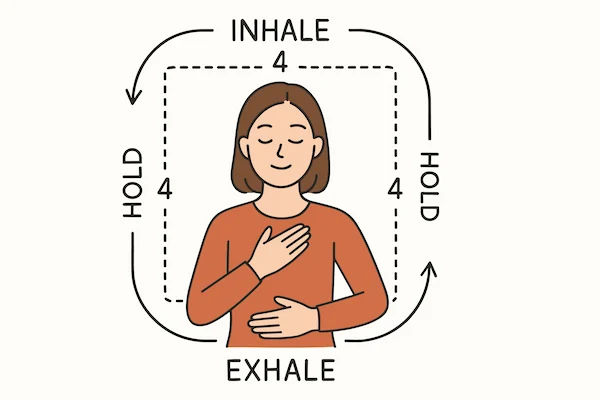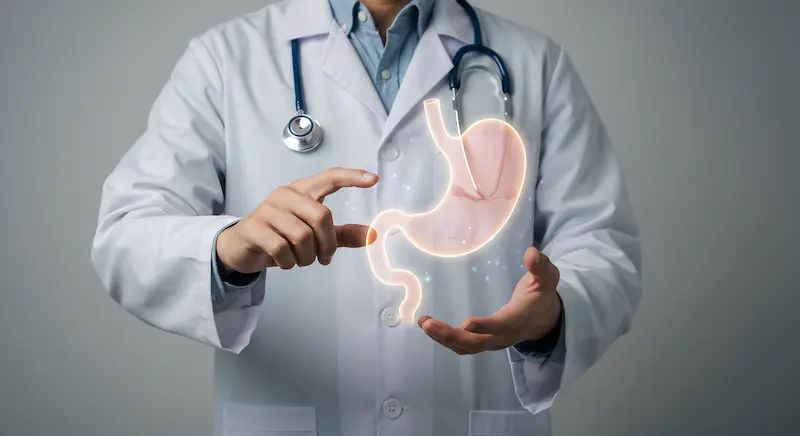Guide to Stress Can Cause Serious Disorders Working Women
Discover how chronic stress affects working women and learn practical strategies to prevent serious health and mental disorders. Build resilience, set boundaries, and protect your well-being.


Introduction
In today's fast-paced world, the "she can have it all" narrative often comes with a hidden cost: chronic stress. For working women, the pressure to excel professionally while managing domestic responsibilities and societal expectations can create a perfect storm for their well-being. While a certain amount of stress is normal, persistent, unmanaged pressure can evolve from daily frustration into a catalyst for serious disorders. This isn't just about feeling tired or overwhelmed; it's about understanding how sustained stress rewires your body and mind, leading to tangible health crises. This guide moves beyond surface-level advice to explore the profound link between the unique pressures you face and the development of physical and mental health conditions. We will delve into the science behind stress, identify the red flags of serious disorders it can cause, and equip you with a proactive, sustainable plan to build resilience. Your health is your most valuable asset—it's time to protect it.
Why Working Women Are Uniquely Vulnerable to Chronic Stress
The modern working woman often navigates a complex web of roles—employee, leader, caregiver, partner, and more. This "triple burden" creates a unique set of stressors that, when constant, can overwhelm the body's natural coping mechanisms.
The Triple Burden: Career, Home, and Societal Expectations
Unlike many of their male counterparts, working women frequently shoulder a disproportionate share of household and caregiving duties, a phenomenon often referred to as the "second shift." This constant juggling act, combined with workplace challenges like the gender pay gap or unconscious bias, creates a relentless pressure cooker. The mental load of remembering family appointments, managing household needs, and meeting professional deadlines is a significant, often invisible, source of stress. This continuous effort without adequate rest or support is a primary reason why women are more susceptible to the downstream effects of chronic stress.
The Physiology of Stress: Your Body's Alarm System
To understand how stress causes serious disorders, we must look at the hormone cortisol. In acute stress (like meeting a tight deadline), your adrenal glands release cortisol, sharpening your focus and providing a burst of energy—the "fight or flight" response. This is life-saving in short bursts. However, under chronic stress, the alarm never switches off. Consistently high cortisol levels disrupt nearly every system in your body. It's like leaving a car engine running at high RPMs indefinitely; eventually, parts will wear out and fail. This systemic disruption is the foundation for the health issues we will explore next.
Consult a Specialist for the best advice
The Physical Toll: When Stress Manifests as Serious Disorders
When cortisol remains elevated, it moves from being a helpful alert system to a destructive force, directly contributing to a range of physical health problems.
Cardiovascular Complications: Beyond Occasional Palpitations
Chronic stress contributes to high blood pressure, increased heart rate, and inflammation within the arteries. Over time, this significantly raises the risk of hypertension, heart attacks, and strokes. A study published in the Journal of the American Medical Association found that women with high-stress jobs had a 40% increased risk of cardiovascular events. What might start as occasional stress-induced palpitations can, without intervention, evolve into a serious disorder with lifelong implications.
Endocrine Disruption: The Stress-Hormone Connection
Your endocrine system, which regulates hormones, is highly sensitive to stress. Elevated cortisol can disrupt the delicate balance of reproductive hormones, potentially exacerbating conditions like polycystic ovary syndrome (PCOS) or thyroid imbalances. It can also lead to irregular periods, reduced fertility, and more severe menopausal symptoms. Furthermore, cortisol encourages the storage of visceral fat (around the abdomen) and can lead to insulin resistance, a precursor to type 2 diabetes.
Weakened Immunity and Gastrointestinal Distress
Have you noticed you get sick more often during high-stress periods? That’s because cortisol suppresses the immune system to conserve energy for the perceived "emergency." This makes you more vulnerable to infections. Similarly, the gut has millions of neurons and is deeply connected to the brain via the gut-brain axis. Stress can trigger or worsen conditions like irritable bowel syndrome (IBS), acid reflux, and stomach ulcers.
The Invisible Battle: Stress-Induced Mental and Emotional Disorders
The impact of stress isn't just physical. Its effect on mental health can be equally, if not more, debilitating.
From Burnout to Clinical Depression and Anxiety Disorders
Burnout—characterised by emotional exhaustion, cynicism, and reduced professional efficacy—is often a stepping stone to more severe conditions. When the nervous system is constantly on high alert, it can lead to diagnosable anxiety disorders, including generalised anxiety and panic attacks. The depletion caused by chronic stress is also a major risk factor for clinical depression. The feeling of being overwhelmed and unable to cope can become a persistent state, making it crucial to recognise the signs of chronic stress in female professionals before they escalate.
Cognitive Impact: Brain Fog, Memory Lapses, and Decision Fatigue
High cortisol levels can physically affect the brain, particularly the hippocampus, which is vital for memory and learning. This leads to the familiar feeling of "brain fog," where concentrating, making decisions, and recalling information becomes difficult. For a professional, this cognitive impact can hinder performance, creating a vicious cycle of stress about work quality leading to more stress.
Proactive Defence: Building a Sustainable Stress-Resilience Plan
The goal is not to eliminate stress entirely, which is impossible, but to manage your response to it and build resilience.
Micro-Habits for Macro-Impact: Integrating Wellness into a Busy Schedule
You don't need hours of free time. Incorporate five-minute meditation sessions using an app, take a 10-minute walk during your lunch break, or practice deep-breathing exercises between meetings. These "micro-habits" act as circuit breakers for your nervous system, lowering cortisol levels throughout the day.
Setting Digital and Professional Boundaries for Mental Peace
Define clear lines between work and personal life. Turn off non-essential work notifications after hours. Communicate your "unavailable" times to colleagues. This setting of digital and professional boundaries is not a luxury; it's a necessity for mental survival in a hyper-connected world.
The Power of "No" and Delegation
Understand that every "yes" to a new commitment is a "no" to your well-being. Practice declining requests that overextend you. Similarly, delegate tasks both at work and at home. You do not have to do everything yourself. Sharing the load is a critical skill for managing work related stress for women.
When to Seek Professional Help: Recognising the Red Flags
Self-care has its limits. It is essential to seek professional help if your stress is causing significant distress or impairment for two weeks or more. Red flags include:
- Inability to function at work or home.
- Withdrawing from social interactions.
- Using alcohol or other substances to cope.
- Persistent feelings of sadness, hopelessness, or anxiety.
- Significant changes in sleep or appetite.
If you recognise these signs, it's time to consult an expert. If your condition does not improve after trying these methods, book a physical visit to a doctor with Apollo24|7 for further evaluation. A mental health professional can provide strategies like cognitive behavioural therapy (CBT), which is highly effective for stress-related disorders. In some cases, a doctor might recommend tests to check for stress-induced deficiencies (e.g., vitamin D or B12) or hormonal imbalances. Apollo24|7 offers a convenient home collection for tests like vitamin D or HbA1c, making it easier to get the insights you need.
Conclusion
Navigating a high-pressure career while maintaining personal well-being is one of the greatest challenges facing modern women. The link between unmanaged stress and the development of serious disorders is undeniable and backed by science. However, this knowledge is empowering. By understanding the physiological and psychological impacts, you can shift from being a passive victim of stress to an active architect of your resilience. Remember, prioritising your health is not selfish; it is the foundation that allows you to perform effectively in all areas of your life. Start small, be consistent with your boundaries, and listen to your body's signals. If those signals become warning signs, have the courage to seek support. Your long-term health, happiness, and career sustainability depend on the actions you take today to manage the pressure.
Consult a Specialist for the best advice
Consult a Specialist for the best advice

Dr. Puli Vanaja Reddy
Psychiatrist
15 Years • MBBS, MPH (USA), DCP (UK)
Hyderabad
Apollo Hospitals Jubilee Hills, Hyderabad
(200+ Patients)

Dr. Debdatta Pati
Psychiatrist
18 Years • MBBS, DPM, MD (PSYCHIATRY)
Kolkata
MCR SUPER SPECIALITY POLY CLINIC & PATHOLOGY, Kolkata

Dr. Patel Punit
Psychiatrist
4 Years • MBBS, MD Psychiatry
Deesa
Rudra clinic, Deesa

Dr. Abhijit Chakraborty
Psychiatrist
8 Years • MBBS, DPM, MD Psychiatry
Kolkata
BIENETRE CLINIC, Kolkata

Dr. Anannya Roy
Psychiatrist
6 Years • MBBS, MD (Psychiatry)
Kolkata
VDC Clinic, Kolkata
Consult a Specialist for the best advice

Dr. Puli Vanaja Reddy
Psychiatrist
15 Years • MBBS, MPH (USA), DCP (UK)
Hyderabad
Apollo Hospitals Jubilee Hills, Hyderabad
(200+ Patients)

Dr. Debdatta Pati
Psychiatrist
18 Years • MBBS, DPM, MD (PSYCHIATRY)
Kolkata
MCR SUPER SPECIALITY POLY CLINIC & PATHOLOGY, Kolkata

Dr. Patel Punit
Psychiatrist
4 Years • MBBS, MD Psychiatry
Deesa
Rudra clinic, Deesa

Dr. Abhijit Chakraborty
Psychiatrist
8 Years • MBBS, DPM, MD Psychiatry
Kolkata
BIENETRE CLINIC, Kolkata

Dr. Anannya Roy
Psychiatrist
6 Years • MBBS, MD (Psychiatry)
Kolkata
VDC Clinic, Kolkata
More articles from General Medical Consultation
Frequently Asked Questions
1. What are the first subtle signs of stress turning into a disorder?
Early signs often include persistent headaches, changes in sleep patterns (sleeping too much or too little), increased irritability, relying on caffeine to get through the day, and a loss of interest in activities you once enjoyed. These are signals that your stress levels are moving beyond a healthy range.
2. Can stress really cause long-term hormonal problems like PCOS?
While stress doesn't directly cause PCOS, it can significantly worsen its symptoms. High cortisol levels can disrupt insulin sensitivity and amplify hormonal imbalances, leading to more severe manifestations of conditions like PCOS. Managing stress is a critical component of managing such hormonal imbalances in women.
3. How can I differentiate between normal work pressure and harmful chronic stress?
Normal work pressure is temporary and situational—it ends when the project is complete, and you can relax. Harmful chronic stress is persistent, feels inescapable, and continues even during periods of rest. If you feel constantly 'on edge,' drained, and unable to recover, it's likely chronic stress.
4. What is the single most effective daily habit to reduce stress?
There's no single magic bullet, but consistent mindfulness or meditation practice is overwhelmingly supported by research. Even 5-10 minutes a day can train your brain to detach from stressful thoughts and lower cortisol levels, building resilience over time.
5. When should I consider talking to a therapist versus just trying to relax more?
If your efforts to relax (exercise, hobbies, etc.) aren't making a dent in your feelings of overwhelm, or if stress is impacting your relationships and job performance for more than two weeks, it's time to see a therapist. They provide evidence-based tools to change your relationship with stress, which goes beyond simple relaxation.



.webp)
